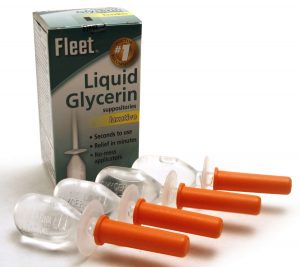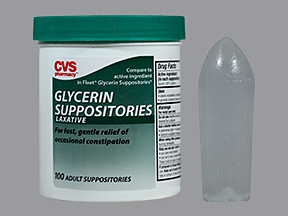Contents
- Adult Suppositories rectal: Uses, Side Effects, Interactions, Pictures
- What are Rectal Suppositories?
- Why use rectal suppository
- Types of Rectal Suppositories
- What are the factors that affect drug absorption from the Rectal Suppositories?
- How to use Rectal Suppositories?
- How long does it take for a suppository to work?
- What are the side effects of Rectal Suppositories?
- What special precautions should I follow while using Rectal Suppositories?
- Does Rectal Suppositories interact with other drugs?
Adult Suppositories rectal: Uses, Side Effects, Interactions, Pictures

What are Rectal Suppositories?
- Rectal Suppositories represent solid forms of drug or medication intended to be inserted into the rectum.
- Rectal Suppositories are available in diverse shapes and sizes, but generally as bullet shaped and individually packaged.
- Rectal Suppositories are responsible for the delivery of different types of medications either for their local or systemic effects.
- Drug in the Rectal Suppository acts very quickly as the Suppository melts inside the body due to favourable body temperature and get absorbed directly into the bloodstream.
- Rectal Suppositories are used at night as their action needs time ranging from 15 minutes to 8 hours.
- They are available as both prescription and over-the counter forms.
- The common Rectal Suppositories include Magic Bullet, Therevac, and Dulcolax.
Why use rectal suppository
Under what conditions Rectal Suppositories are used?
- Rectal Suppositories may be used for the delivery of some medications including laxatives and drugs for the treatment of internal hemorrhoids in the intestine.
- Rectal Suppositories are also used in pathological conditions of the alimentary canal when a patient faces a blockage in their gastrointestinal tract and the drug tends to be destroyed if taken orally.
- Rectal Suppositories are employed in case of patients who have a difficulty in swallowing especially children and some adults.
- Rectal Suppositories are of importance in case of drug administration which causes gastric irritation e.g., aminophylline.
- These Suppositories often play important role in following conditions which prevent the uptake of drugs by parenteral or oral means including
- Seizures
- Vomiting
- Nausea
- Inflammatory bowel diseases
- Hemorrhoids
What is the use of Rectal Suppositories?
Rectal Suppositories are often used as a delivery system for drugs or medications employed for treatment of variety of conditions including:
- Constipation
- Nausea
- Vomiting
- Pain
- Fever
- Hemorrhoids
Use of Rectal Suppositories is contraindicated under which conditions?
Rectal Suppositories are usually not recommended in case of patients with following conditions:
- Rectal surgery
- Rectal bleeding
Types of Rectal Suppositories
Rectal Suppositories are divided into two types and are as follows:
Stimulant type Rectal Suppository:
- It is responsible for stimulating the muscles of the wall of small intestine as well as colon in order to produce a bowel movement.
- Besides this, it also brings about a change in the amount of electrolyte and water in intestines.
- This results in raising the fluid level responsible for stimulation of the bowel activity in the body and also softening the stools.
- Glycerine as well as Potassium bitartrate and sodium bicarbonate Rectal Suppositories belongs to this category.
Glycerine Rectal Suppositories:
- The Glycerine Rectal Suppositories contain glycerine as the active ingredient or the drug.
- Glycerin belongs to the category of medications called as hyperosmotic laxatives.
- It acts by resulting in contraction of the muscles as well by works by accumulation of water into the intestines thereby causing bowel movement in a very short span of time ranging from 15 minutes to 1 hour.
Potassium bitartrate and sodium bicarbonate Rectal Suppositories:
- These suppositories contain 2 active ingredients namely potassium bitartrate and sodium bicarbonate.
- These belong to the class of carbon dioxide releasing laxatives.
- These suppositories bring about bowel movements by resulting in the formation of carbon dioxide gas which causes contraction in the wall of the intestine and moving with the stool.
- The bowel movement is achieved within 5-30 minutes with these suppositories.
Retention type Rectal Suppository:
- These types of Suppositories are responsible for delivering the medication in the body.
- Examples of drugs delivered by these Suppositories include paracetamol, acetaminophen, theophyllin, indomethacin etc.
- Aspirin suppositories, and chloral hydrate suppositories etc. belong to this category.
Aspirin suppositories:
- The active ingredient in the suppository is aspirin.
- Aspirin belongs to the class of medications known as nonsteroidal anti-inflammatory drug (NSAID).
- It acts by blocking the chemicals that are responsible for swelling and pain.
- These suppositories are used for reducing fever and also involved in the management of pain, prevent blood clot formation and reduces risk of heart attack.
Chloral hydrate suppositories:
- These suppositories contain chloral hydrate as the active ingredient.
- Chloral hydrate belongs to the category of drugs known as hypnotics and nonbarbiturate sedatives.
- It acts by acting on the central nervous system (brain) and results in its depression causing drowsiness and sleep.
- These suppositories are employed for the treatment of sleep related diseases, anxiety, symptoms related to alcohol withdrawal etc.
What are the factors that affect drug absorption from the Rectal Suppositories?
There are various factors that affect the absorption of drug from the Rectal Suppositories. These can be categorized into two types, namely, physiologic factors and physicochemical factors relating to the drug.
- Physiologic factors: These can be further subdivided into following types, including
- Contents in the colon: Presence of fecal material in the colon reduces the absorption of the drug. Some other medical conditions affecting the degree and rate of absorption of the drug include obstruction in the colon, diarrhea, and dehydration of the tissue.
- Route of circulation: Portal circulation is usually evaded when the drugs are absorbed by rectal system. This prevents destruction of the drugs in the liver and results in exertion of the systemic effects of the drugs. Besides, the circulation by lymphatic means also help in drug absorption administered rectally.
- Rectal fluids and pH: The neutral nature of the rectal fluids prevents any effective buffering capacity of the fluids and does not chemically affect the drugs.
- Physicochemical parameters of the drug:
- Drug: The lipophilic or hydrophilic nature of the drug determines its relative solubility. The size of the dispersed drug particle is also an important parameter in determination of drug absorption.
- Suppository base: The hydrophobic or hydrophilic nature of the suppository containing the drug, its ability to dissolve or melt at the favourable body temperature, as well as its capability to release the drug determine the rate of absorption of the drug.
How to use Rectal Suppositories?
- Throw away the used stuff after use and thoroughly wash your hands.
- It is also recommended to use the suppository only once per day
- Try to be in the same position for at least 15-20 minutes after insertion of the suppository.
- Insert the suppository into the rectum with the help of finger until it crosses the muscular sphincture of the rectum.
- It is recommended to lie on the left side of your body with slight bending of the right knee.
- Remove the suppository from the wrapper and moisten it with lukewarm water if necessary.
- Washing of the hands is required for the use as well as after the use of the Rectal Suppository.
- In case of any query regarding the use of Rectal Suppository, consult with your doctor.
- Before the use of the Rectal Suppositories, it is recommended to follow the instructions on the product label or as directed by the doctor.
How long does it take for a suppository to work?
Bowl movement may start within 15 to 75 minutes depends upon individuals.
What are the side effects of Rectal Suppositories?
Besides providing treatment for a range of diseased conditions, the use of Rectal Suppositories is accompanied with a number of side effects. These side effects can be divided into two categories including common and serious side effects. It is recommended to consult your doctor immediately in case the side effects persist for a longer time.
Common side effects include:
- Irritation in the rectum
- Burning sensation in the rectal area
- Feeling of discomfort in the abdomen
- Cramps
- Presence of mucus in the stool
Some serious side effects also occur and include the following:
- Severe stomach ache
- Persistent pain the stomach
- Stool with blood
- Bleeding in the rectal area
- Persistent diarrheal problem
- Continuous feeling for bowel movement
- Anaphylactic reactions including itching, swelling of some of the body areas, dizziness, rash and difficulty in breathing
This does not comprise the entire list of the possible associated side effects. Other side effects may also arise. It is advisable to consult the doctor in case any side effect occurs.
What special precautions should I follow while using Rectal Suppositories?
It is always recommended to take special precautionary measures while using the Rectal Suppositories.
- Discuss with your doctor or pharmacist about any allergic reactions you encounter during the use of a particular drug, food and other substances.
- Discuss with your doctor and pharmacist about the prescription and nonprescription medications or dietary supplements you are taking.
- Inform your doctor if case you are pregnant, or plan to become pregnant. Call your doctor right away if you become pregnant while making use of the Rectal Suppositories.
- Discuss with your doctor in case you are breast feeding before the use of the suppository.
- Avoid the use of the Rectal Suppository in case of certain medical ailment such as blockage in the intestine and rectal bleeding.
- Discuss with your doctor about your medical history before the use of the drug, especially conditions related to bowel disturbances, vomiting, abdominal pain, nausea and muscular cramps.
- Consult with your doctor if you notice any change in the bowel habits that persists for a longer period.
Does Rectal Suppositories interact with other drugs?
- The Rectal Suppositories may show interaction with other drugs, including both prescription and over-the-counter medications.
- Use of dietary supplements and herbal products may also show interaction with the Rectal Suppositories.
- Glycerine suppositories may interact with other laxatives and hence it is advisable to avoid the use of other laxatives while using glycerine suppositories
- Loop diuretics and anti-coagulants are known to interact with the chloral hydrate suppositories.
- It is advisable not to start, modify or stop the use of any other drug while you are using the rectal Suppositories.




